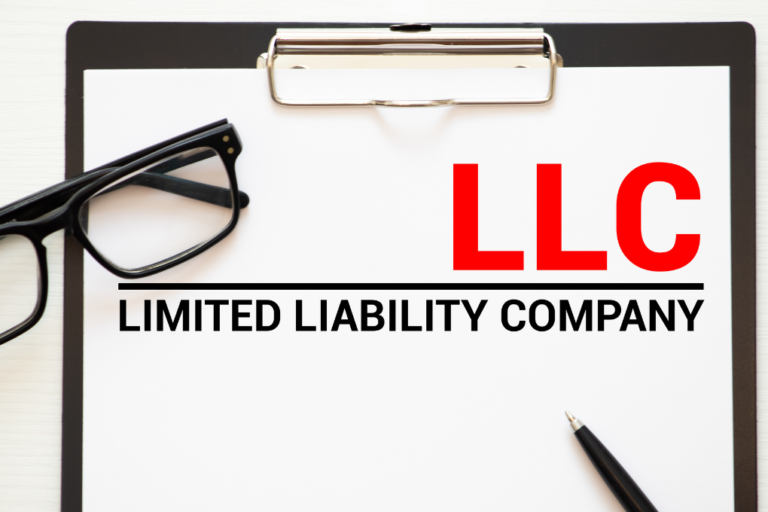I want to start today’s conversation with what I think is the latest and greatest, which has real implications for people. I’m talking specifically about the Corporate Transparency act, the CTA.
It was enacted back in 2017 as part of funding the US military. It comes down to breaking down the transparency that currently exists within the US entities. Under the CTA, all of that (privacy) goes away. People who want to hide who ownership, that’s more or less dead.
The CTA now requires you to report who the beneficial owners are. And there’s a whole long definition of that: 20% or more equity including voting control, effective or deemed to be ownership control through family members, being a manager of an LLC, and so on. The new rule is that anything formed from the beginning of the year must be reported within 90 days. If it’s a preexisting entity, you have until 2025 to report. But I’m not sure it’s wise to wait until 2025.
Jack BeVier:
So, let’s break that down just so everyone understands.
I can go on the Department of Assessments and Taxation website for the state and look up the formation documents, articles of organization, and the original operating agreement. I can see who the resident agent is for serving lawsuits, for example. That information is already currently public. But as you mentioned, often when we go on there, we’ll see a resident agent and it’ll be an attorney. So, you don’t get much if any information about that.
Now, this is going to change. You’re going to have to report who the beneficial owners are of any particular LLC and you’re going to have to ride that up the entire chain of LLCs. You’re going to have to trace back the beneficial ownership up to whoever those humans are. That’s the change here. We’re going to be required to report those beneficial owners, but that doesn’t mean that information’s going to be made public.
Douglas Stein:
You are correct. It all gets reported with FinCEN, which is a US government (agency) that then shares that information with the Internal Revenue, DOJ, the FBI, and the Department of Homeland Defense. Technically, it’s not out in the open public… The Freedom of Information Act is inapplicable to the CTA. But here’s the catch… Historically, we say no one could get your tax returns, but in a deposition, if it’s relevant to the case, I can get that information because it’s a business filing that you filed – it’s not privileged. There’s an attorney-client privilege, there’s an accountant privilege. The CTA is no different. It is correct in the sense that the general public doesn’t have easy access to it. But if someone sues you, it’s a different story.
Jack BeVier:
It’s not a game changer for the average American trying to figure out who owns what, but it is a game changer from the government’s point of view, right?
Douglas Stein:
Yeah, I’m expecting the IRS to come in now with audits…It’s going to be different.
Craig Fuhr:
For the average real estate investor who does multiple transactions a year; and has been in business for several years, not just hobbyists – this is what they do for a living. What is something like this going to do to that person in terms of cost if they must form a new LLC? And what are the ramifications of not complying with this and reporting?
Jack BeVier:
And how do you register?
Douglas Stein:
I don’t think anyone has a choice anymore. The classic structure was a holding company (an LLC), for every property or maybe a series of LLCs to hold properties. Each one of those LLCs now needs to file. It’s a major undertaking going forward. Every single time there’s a change, you’ve got to go through this process.
Jack BeVier:
For those who hit that 20% threshold of ownership in the LLC or company, correct?
Douglas Stein:
Correct. Or control. Effective or actual. Let’s say you have six owners: nobody has 20% and they’re all equal owners. Then who files? The answer is who has effective control. We report them all.
Craig Fuhr:
I’m curious, what is the penalty?
Douglas Stein:
I think the penalty is up to $10,000 per year, per report that was due.
Jack BeVier:
Do I have to do a filing for every operating entity or every entity? Say I have a nonoperating entity that doesn’t have employees, doesn’t even have an EIN, doesn’t file a tax return, it’s owned by another LLC. Do I have to file for that child LLC and disclose the parent the whole way up to the humans?
Douglas Stein:
At this point, it’s every single entity, even if it has been liquidated, even dead entities.
Jack BeVier:
A lot of folks who are concerned about this idea, right? They’re looking for anonymity. They don’t want their business to be put out in the public sphere. A lot of them have gone a step beyond just LLCs and involved trusts. That has become a very popular structure for asset protection and anonymity for a lot of folks. How does this new law impact those trusts?
Douglas Stein:
As it pertains to the government, the trusts are ignored, and we go into the human beings.
Jack BeVier:
You’re going to have to disclose if someone’s a beneficiary of a trust. That beneficial interest is going to be part of this filing requirement.
Douglas Stein:
Correct. That’s right.
Craig Fuhr:
Can we talk about the mechanism for reporting? It looks like FinCEN is a part of the Treasury. And so, I’m a guy, I’ve got an LLC or three, got a bunch of houses, thinking about buying some more. I don’t want to go hire an attorney or an accountant to do all this for me. I think I can do it myself. Should I do that, Doug?
Douglas Stein:
That’s a harder question to answer. I think if it’s one or two entities, the typical person can do it. You’re going to have to go into the system and register. They’ll have to get the UIN numbers and upload their passport or their driver’s license. And they’ll have to report the one or two entities that they own. It’s one entity at a time. I think once you get beyond, let’s say, five entities, you’re talking real-time, and you’re talking real risk. It’s probably better to hire people.
Craig Fuhr:
I’m just concerned for the average guy who is trying to traverse all of this while still maintaining a business and trying to grow it. How tough this is going to be to get through.
Douglas Stein:
I’ve always believed if your structure is based upon anonymity, you will fail. I always assume in the end, everything’s going to be known. Any decent attorney will get that information anyway. This one’s got me concerned. It has me concerned because I think the typical person doesn’t know their obligation. I’m always worried about the unanticipated consequences. Every law has these and they bite people. That’s why they’re there – they’re made specifically to bite you.

